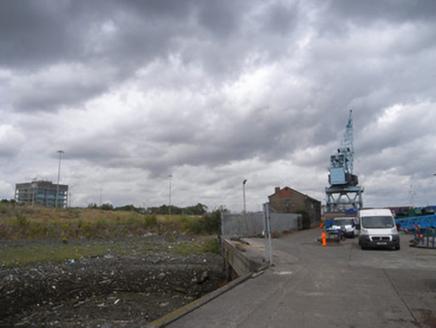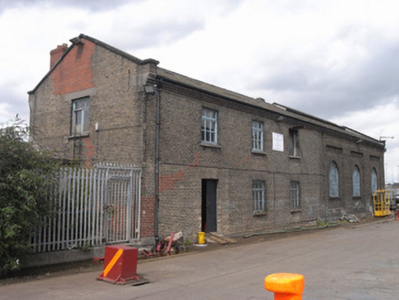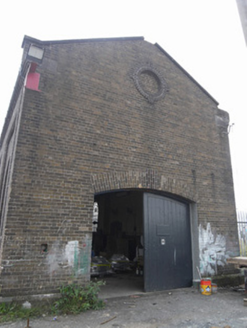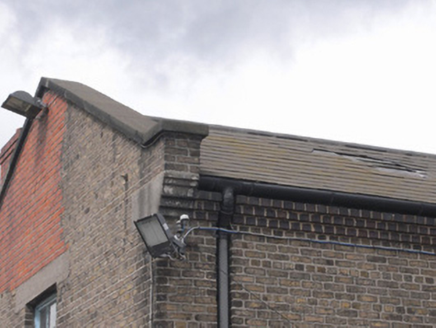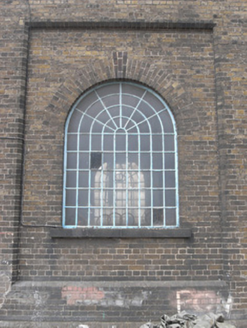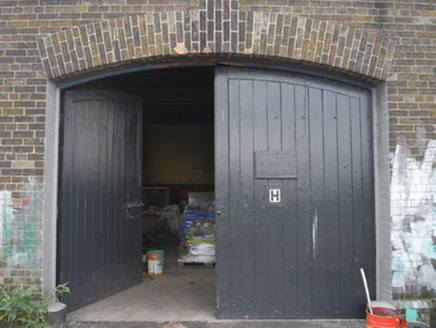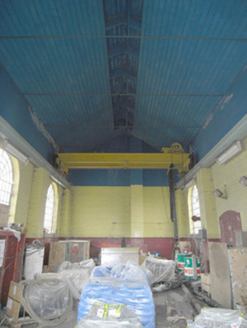Survey Data
Reg No
50060587
Rating
Regional
Categories of Special Interest
Architectural, Technical
Original Use
Building misc
In Use As
Store/warehouse
Date
1900 - 1920
Coordinates
318411, 234709
Date Recorded
01/10/2014
Date Updated
--/--/--
Description
Detached gable-ended pump house, northern three-bay double-height half, built c.1910, and southern three-bay two-storey added shortly later, adjacent to southeast corner of now-infilled Graving Dock. Pitched natural slate roof with black clay ridge tiles set behind raised gables having granite coping and moulded granite kneeler stones. Replacement uPVC guttering supported on stepped brick eaves course, with replacement uPVC down-pipes embedded in walls. Buff brick walls laid in English garden wall bond with projecting brick plinth course having chamfered granite trim (to north half only). Earlier part has recessed panels with gauged brick round-headed window openings having multiple-pane iron windows with spoked heads and granite sills. Gauged brick camber-headed window openings to south half with replacement timber windows and granite sills. Gauged brick segmental-headed vehicular opening to north gable with original double-leaf sheeted timber doors. Gauged brick square-headed door opening to south bay having double-leaf sheeted timber doors. Interior is double-height to north end and two-storey to south end. Northern part has timber sheeted roof with iron ties and painted brick walls. Windows flanked by piers openings and supporting rolling steel mechanism. Located in Dublin Port, area comprising modern industrial and maritime buildings, interspersed with patches of wasteland. Early twentieth-century dry dock to east.
Appraisal
Although now in use as a store, with little evidence of the associated pump machinery, this early twentieth-century pump house forms part of the rich industrial heritage of Dublin Port. It is notable for its two halves of different dates, with different facade arrangements, though unified by the common use of brick walling and continuous corbelled-out brick eaves work. The earlier, associated Graving Dock appears to have been infilled, and consequently this former pump house remains as one of the few remnants from that era. The varying nature of the facade and its openings, coupled with good eaves details, makes this building visually interesting. Its function gives it technical interest.
